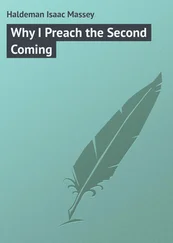Na-mib-ia
Our country
Na-mib-ia, motherland, we love… (Thee!)
Nothing happened. Two minutes, five minutes. We waited on the edge of shrieking at the first sight of the great man. Sirens whirled. The cops on motorcycles spoke furtively into walkie-talkies. The noise of their engines revving, idling, revving. The windows of the limousine were tinted. We thought he was in there having a late lunch. Or maybe he was in the motor home having a nap after the long trip out to Goas from the capital. Sweat was beginning to show through the back of the principal’s suit jacket. Pretty soon he would need to be wrung out. This a man who prided himself on never working hard enough to perspire. He was supposedly an old school chum of the general’s. Our knees had buckled already (but we were packed so close together, we didn’t fall), when we heard the gate clank. Our eyes moved as one, and we saw, at the cattle gate, a tiny man, his body weighed down by a jacket full of medals. He was carrying his shoes.
“I walked,” he shouted. “I walked to my beloved Goas like the farm boy I used to be!”
The principal started toward him, breasts juggling under his lapels, panting into his bullhorn. “Oh, my dear Zacharias, welcome back! Your kindness to visit us here is really beyond the call of any —”
The general didn’t take the principal’s hand. Instead, we all watched him raise a tiny foot and show the bottom of it to the principal. “Fetch me a thorn, Charles.”
Into the bullhorn, the principal continued to burble: “That you created time for these children, to help us, to inspire, to enlighten —”
“A thorn, Charles.”
“Humble place such as this our school, that you should return —”
“If you don’t put that thing down, I’ll have you shot.”
And we watched in amazement as the principal himself, not a minion, dashed off into the closeveld and stooped beneath an acacia and picked up a thorn. It was long, nail-like, and the principal carried it back to the general in the palm of his hand, gently, like a wounded bird.
“Inject it.”
“Zacharias!”
“Now!”
We watched this also. The principal stuck a thorn in Comrade General’s Kangulohi’s foot, and the general cried, “See? Still rock-hard! Myself in cushiony exile! My bemedaled chest!”
He hopped toward us on one leg, ostrich-like, the thorn still sticking out of his foot. Now came the speech. The general said he’d learned everything he ever needed to know right here at Goas, that they were the happiest days of his life, but that the Boers ended that happiness for him, for everybody. He stood on one leg and espoused.
“But I’m not going to stand before you today and tell you about war,” he said. He raised his thin arms and tossed his shoes into the sand.
“No, I will not speak of the long night of exile, of what it was to not see my mother or my mother’s land for more than fourteen years. I will not discourse on such pain. Nor will I tell you of the hell of the South African prisons, or of Cassinga. Of the bombs that rained that bloody day. No, I will not stand before you and talk of the blood of your brothers and sisters, your mothers and your fathers.”
The general paused, looked out at us, and grinned. This threw us off. You did not mention the massacre at Cassinga and grin.
The principal launched into a fit of clapping and we did the same.
The general ordered a cease-fire. “No applause. No, my children, I wish to speak of today, of now. My children, you have freedom. So much freedom. Lord, you even have the freedom to hate.”
He hopped around in an angry circle to show us what hate looked like.
“Yet, I say, do not exercise this right. Hold it, even cherish it, but don’t use it. Why? ” He did that circle dance again. “Because it’s too easy!” He hopped over and snatched up the principal’s bullhorn and shrieked: “What’s hard is loving! That’s why I say to you, children of Namibia, saplings of a newly watered nation, I love you. You think a big man, a comrade such as myself, doesn’t say such a thing. Well, I say it! And I will shock your little ears and say it again. Tell your mamas what Kangulohi said: I LOVE YOU!”
He hopped closer to us.
“All we must do now to build this nation, this beautiful country, is work. Work. Work and learn. Learn. Learn. Learn. Forget hate, hate, hate and love, love, love.”
We clapped more frantically. The general again waved us away. “’Tis you,” he roared. “I’m no one. ’Tis you!”
We felt light-headed, patriotic, and, yes, loved. .
He spotted Mavala. “And who, may an old general ask, are you, comrade?”
“Shikongo, sir. Chetequera Camp, Angola. 1986 to 1989.”
“Commanding officer?”
“Elias Haulyondjaba, sir.”
“Elias. Bless his soul. I commend you for your commitment to the struggle in the past, and your commitment to the struggle in the future, Comrade Shikongo, from the bottom of my heart as well as from my sore foot.”
Laughter, applause, applause.
Obadiah stepped forward. “May our distinguished guest allow a humble teacher to quote the great murdered poet Archilochus?”
“Permission granted, Humble Teacher.”
And Obadiah took off his aviator hat and raised his mouth toward the sky and recited: “I love not a tall general, not a straddling, nor one proud of his hair nor —”
That she chose her husband’s shining moment to water the hedge of the bush in front of their house should not, in the larger scheme of Goas, have been surprising. She wasn’t a person to remain invisible any more than Obadiah was.
The nozzle of her hose rose slowly, very slowly, over the fence. One of the soldiers caught sight of it and raised his rifle.
“Wait,” Obadiah shouted. “Don’t fire! That’s my hag. Wife!” The general motioned for the man to lower his gun and looked curiously at the head that was now peering over the bushes, as if daring him to shoot her face off in the name of love.
If you imagine Goas as a village, which it wasn’t — it was a school on a farm in the otherwise empty veld — but even so, if you were to think of all of us living in a sort of idyll, the soccer field was our village square, our sacred ground.
It took him a while to hop across it.
We were too far away to hear any of it, but after speaking to her through the fence for five minutes, the general knelt down and kissed the ground. Then we watched her reach and lug him up by the armpits. Antoinette was a giant compared to that little general. Then — and you may dismiss this as just another of the daily lies of Goas, but I saw it happen — she clutched his head and kissed him. Hard and long and slobbery. It was not the kiss of a hag. She talked about it for days after. How he begged her pardon for his guns and even his cursed uniform. How he said in the future, in the glorious future, we wouldn’t need armies anymore and that he was only holding on to his for a while longer because there were still people who didn’t believe in love. She said the man lied so much his lips fell off. What choice did she have but to glue them back on? I’m not a woman without compassion. Shouldn’t a doomed man, she said, have at least one good memory?
My grandfather?”
“Yes.”
“He was a pants jobber. His name was Leo.”
“A what?”
“An apprentice tailor. He also boxed hats and treffed coats. What about yours?”
“He was Tshaanika, eighteenth Onganjera king.”
“Oh.”
Mavala stretched her arms and yawned. On the underside of her right breast, a birthmark in the shape of a bean.
Читать дальше












